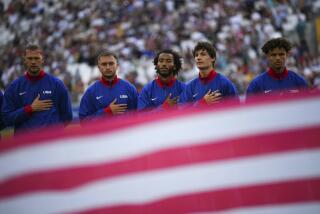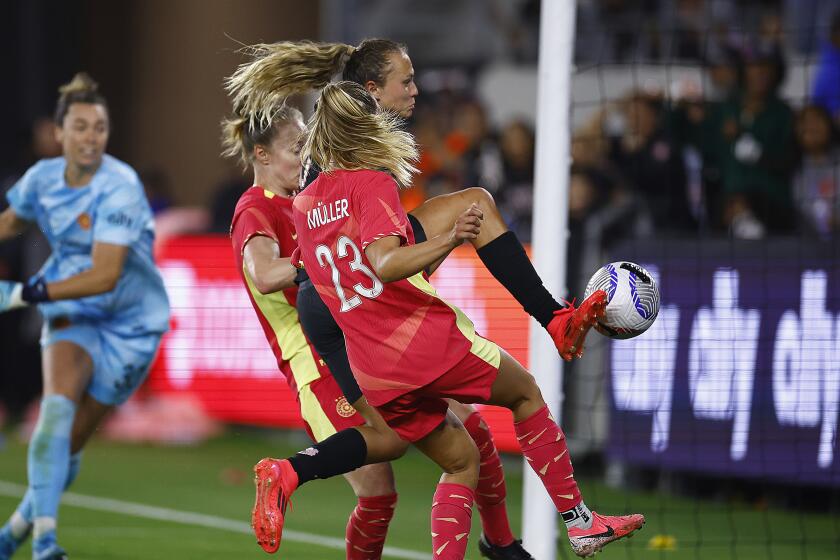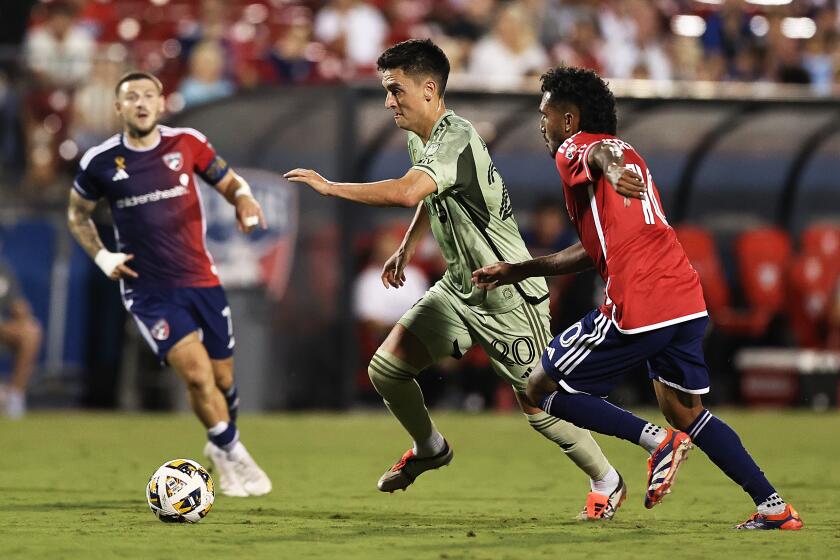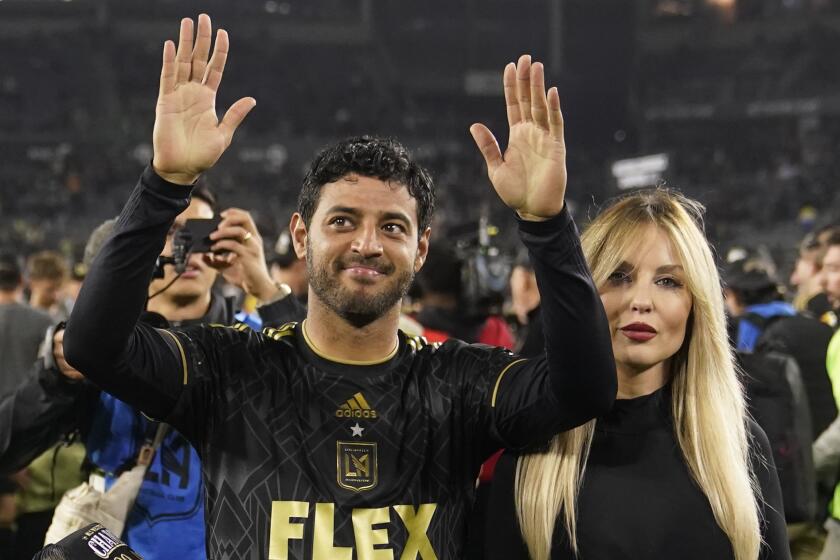Costa Rica believes it has found an edge in Gold Cup semifinals with U.S.

The U.S. is unbeaten, unabashed and largely untested four games into the CONCACAF Gold Cup. Which wasn’t completely unexpected.
But the Americans have also been uncertain and uncreative at times. And those are just two of the faults Costa Rican coach Oscar Ramirez hopes to capitalize on in Saturday’s tournament semifinal at AT&T Stadium (FS1, Univision, 7:15 p.m. PT).
“The United States has some shortcomings, like all teams,” Ramirez said Friday. “And we’ve talked to the team about how to take advantage of those shortcomings.
“We’ve identified some of their tendencies and the things that we can do. I think it’s going to be a chess match. And we intend to make the most of it.”
Ramirez concedes his team is the underdog, even though he has success against the U.S. since taking over the Costa Rican program two years ago.The Ticos are playing in a Gold Cup semifinal for the first time since 2009, for example, while the U.S. has made it this far in each of the last nine tournaments. The U.S. will also be playing at home before a pro-American crowd of about 30,000 in the cavernous home of the Dallas Cowboys.
Then there’s the fact this will be the first time Ramirez will match wits with Bruce Arena, who replaced Jurgen Klinsmann as U.S. coach after Costa Rica’s last win, a 4-0 rout in World Cup qualifying last November.
The Americans haven’t lost since, going 7-0-5 under Arena. Ramirez concedes the differences are noticeable.
“The team looks more comfortable under Arena,” he said. “There was a little bit of a tense environment before. But Bruce Arena has improved the environment, the way that the team feels; they look more relaxed in terms of what they’re doing on the field.“
Arena has followed a methodical path through this tournament, starting 22 of the 23 players on his roster in the three-game group stage, then calling up veteran reinforcements Tim Howard, Clint Dempsey, Michael Bradley and Jozy Altidore for the knockout games. And while that’s cost the team style points in terms of chemistry and creativity, the plan allowed Arena to audition young, inexperienced players in the early games, yet still arrive at the semifinals unbeaten and with a core of players who are rested.
“We’re not that bad,” said Arena, whose team has never trailed in the Gold Cup.
“If there’s any issue in our team it’s just that we haven’t played together. And that’s kind of by design. We can’t be real concerned about that.”
Although the U.S. (3-0-1) has had some uneasy moments, like its opening draw with Panama, it has been the dominant nation in the tournament, leading all teams with nine goals in four games while posting shutouts in its last two wins.
Costa Rica, meanwhile, stumbles into Saturday’s match with a rash of injuries. Defender Ronald Matarrita withdrew from the tournament before it began with a broken foot while forward Joel Campbell, midfielders Rodney Wallace and Johan Venegas and defender Bryan Oviedo were hurt during the group stage.
And Ariel Rodriguez, injured late in Wednesday’s quarterfinal win, underwent medical tests Friday, said Ramirez, who was hopeful the forward would be cleared for Saturday’s game.
Despite all those changed, the Ticos have allowed just one goal in their four Gold Cups games. But they managed just one of their own in two of those matches — and they didn’t score at all in the quarterfinal, beating Panama on a late own goal.
“All things indicate that it will be a low-scoring game,” Arena said.
That means small factors could play big roles and one of those could be the playing surface. AT&T’s regular artificial turf was removed and replaced by a thin layer of natural grass, which was rolled out on the stadium’s concrete floor Monday. The result is a hard, unforgiving surface — in Friday’s training session, U.S. players were able to get balls to bounce more than 20 feet off the grass — with numerous seams.
“It’s a little on the hard side, but I think it will play all right,” U.S. captain Michael Bradley said. “The grass is short and with some water it will play fast, which in a game like this is something that will help us.
“Ultimately in a semifinal, the only thing anyone is worried about is getting a chance to play in a final.”
Saturday’s winner will play the winner of Sunday’s Rose Bowl match between Mexico and Jamaica in the Gold Cup final next Wednesday at Levi’s Stadium in Santa Clara.
Twitter: @kbaxter11








